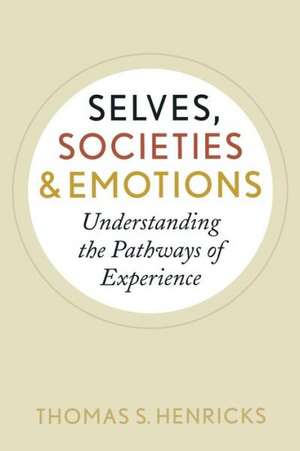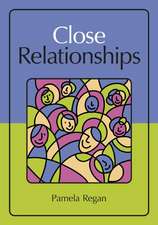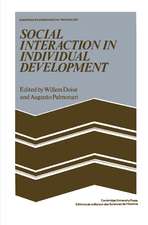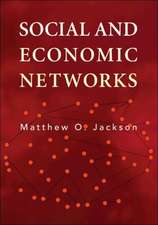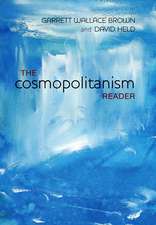Selves, Societies, and Emotions: Understanding the Pathways of Experience
Autor Thomas S. Henricksen Limba Engleză Paperback – 30 noi 2012
| Toate formatele și edițiile | Preț | Express |
|---|---|---|
| Paperback (1) | 410.46 lei 6-8 săpt. | |
| Taylor & Francis – 30 noi 2012 | 410.46 lei 6-8 săpt. | |
| Hardback (1) | 1001.84 lei 6-8 săpt. | |
| Taylor & Francis – 28 feb 2012 | 1001.84 lei 6-8 săpt. |
Preț: 410.46 lei
Nou
Puncte Express: 616
Preț estimativ în valută:
78.54€ • 82.00$ • 65.00£
78.54€ • 82.00$ • 65.00£
Carte tipărită la comandă
Livrare economică 05-19 aprilie
Preluare comenzi: 021 569.72.76
Specificații
ISBN-13: 9781594519574
ISBN-10: 1594519579
Pagini: 234
Dimensiuni: 152 x 229 x 15 mm
Greutate: 0.32 kg
Ediția:New.
Editura: Taylor & Francis
Colecția Routledge
Locul publicării:Oxford, United Kingdom
ISBN-10: 1594519579
Pagini: 234
Dimensiuni: 152 x 229 x 15 mm
Greutate: 0.32 kg
Ediția:New.
Editura: Taylor & Francis
Colecția Routledge
Locul publicării:Oxford, United Kingdom
Notă biografică
Thomas S. Henricks is Danieley Professor of Sociology and Distinguished University Professor at Elon University, USA. His most recent book is Play Reconsidered: Sociological Perspectives on Human Expression (2006).
Cuprins
Chapter 1 Introduction; Chapter 2 Framing Experience; Chapter 3 Selves as Projections of Personhood; Chapter 4 New Settings for Self-Expression; Chapter 5 Emotions as Forms of Self-Awareness; Chapter 6 Emotions and Social Order; Chapter 7 Dissatisfaction, Disorder, and Desire; Chapter 8 Behavioral Pathways;
Descriere
Building on contributions from sociology, psychology, anthropology, philosophy, literature, and neuroscience, Henricks develops a more general account of how people discover and reproduce the "meanings" of their involvements with others.
Among its many themes are treatments of selves as "projections of personhood," of the ways in which self-expression has changed historically and is now experienced in our electronically mediated era, of emotions as "framing judgments," and of ritual, play, communitas, and work as four distinctive "pathways of experience."
